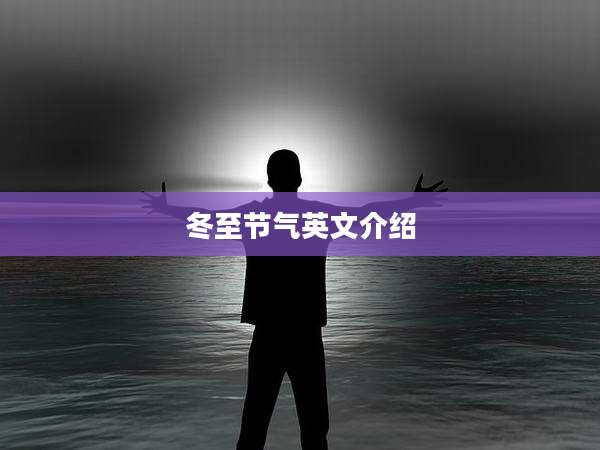冬至节气英文介绍
八字 | 2025-06-05 23:53:34
The Winter Solstice, also known as Dongzhi in Chinese, is an important traditional solar term in the Chinese lunar calendar. It usually falls on December 21st or 22nd each year. The Winter Solstice marks the shortest day and longest night of the year in the Northern Hemisphere.

During this time, the sun reaches its southernmost position in the sky, and the daylight hours are at their shortest. It is believed that after the Winter Solstice, the days will gradually become longer and the nights shorter, symbolizing the return of light and the beginning of the end of winter.
The Winter Solstice is celebrated in various ways across China. In some regions, families gather to have a special meal called "Dongzhi Banquet," which typically includes foods like dumplings, rice porridge, and sweet rice balls. These foods are believed to have warming properties and are thought to help maintain health during the cold winter months.
In addition to the feast, people often engage in other activities such as making dumplings together, visiting ancestors' graves, and lighting candles to honor the spirits. The Winter Solstice is also a time for reflection and gratitude, as people express their appreciation for the year's harvest and look forward to the coming year.
In some parts of China, the Winter Solstice is also known as "Little New Year" or "Dongzhi Jie," and it is celebrated with similar enthusiasm as the Chinese New Year. It is a time for families to come together, share love and warmth, and embrace the hope of a new beginning.
「点击下面查看原网页 领取您的八字精批报告☟☟☟☟☟☟」